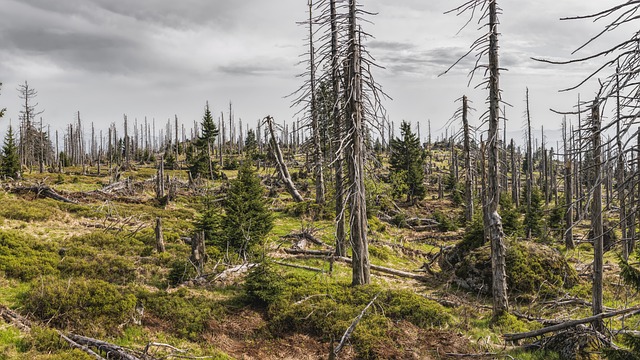The Science of Destruction: A Modern Philosophical Perspective
Destruction, while often perceived as a purely negative force, invites us to explore a deeper philosophical exploration of its role in both our lives and the universe. In the realm of science, destruction serves as a necessary aspect of creation, revealing itself as an intricate dance between chaos and order.
The Paradox of Destruction
From the flicker of a dying star to the collapse of an ancient civilization, destruction is embedded in the fabric of existence. Modern philosophy grapples with this paradox, questioning whether destruction can coexist peacefully with creation. Think of natural phenomena like wildfires; while they ravage vast landscapes, they also rejuvenate ecosystems, promoting new life. This duality reminds us that destruction is not merely an end; it can also be a precursor to new beginnings.
Scientific Insights
Science provides us with insights into how destruction operates on both macro and micro scales. In physics, the principles of thermodynamics illustrate how energy cannot be created or destroyed; it only changes forms. This reflects the philosophical idea that nothing is truly lost in the universe. Similarly, in our personal lives, when we experience a form of emotional destruction—be it the end of a relationship or significant life change—it often leads us to new insights and growth. The chaos of these moments can forge resilience and self-discovery.
The Role of Destruction in Modern Philosophy
Modern philosophers like Gilles Deleuze and Michel Foucault have examined destruction as a means of liberation. They argue that tearing down established structures—be it societal norms, philosophical doctrines, or personal beliefs—can lead to new ways of thinking and existing. In a world fraught with challenges, embracing destruction as a transformative process can empower us to question the status quo and envision alternate realities.
Emotional Resonance of Destruction
The emotional weight of destruction is palpable; it resonates within us. We often associate destruction with loss and grief, yet it can also lead to catharsis and renewal. When we confront our fears or dismantle toxic patterns, we engage in a form of destruction that, paradoxically, paves the way for healing. Reflecting on this dual nature can help us navigate the complex feelings associated with destruction in our lives.
Conclusion
As we delve into the science and philosophy surrounding destruction, we uncover layers of meaning that can inspire growth and understanding. Embracing destruction, rather than fearing it, allows us to appreciate the cyclical nature of existence—where endings and beginnings intertwine. In this exploration, we find that destruction, instead of a sign of failure, beckons us to embark on new journeys of transformation.




